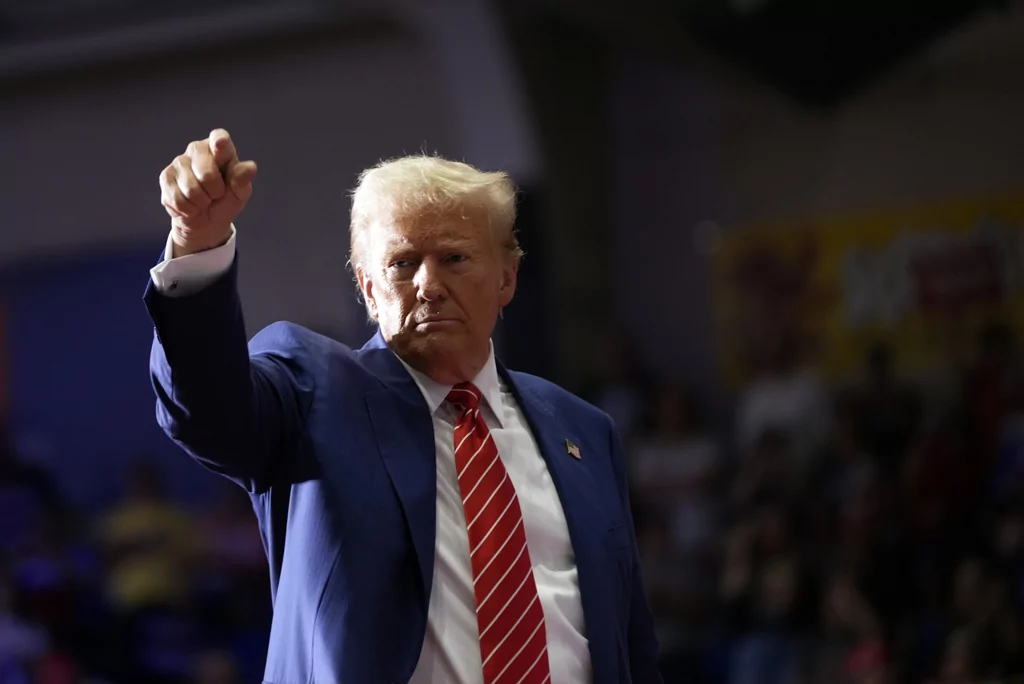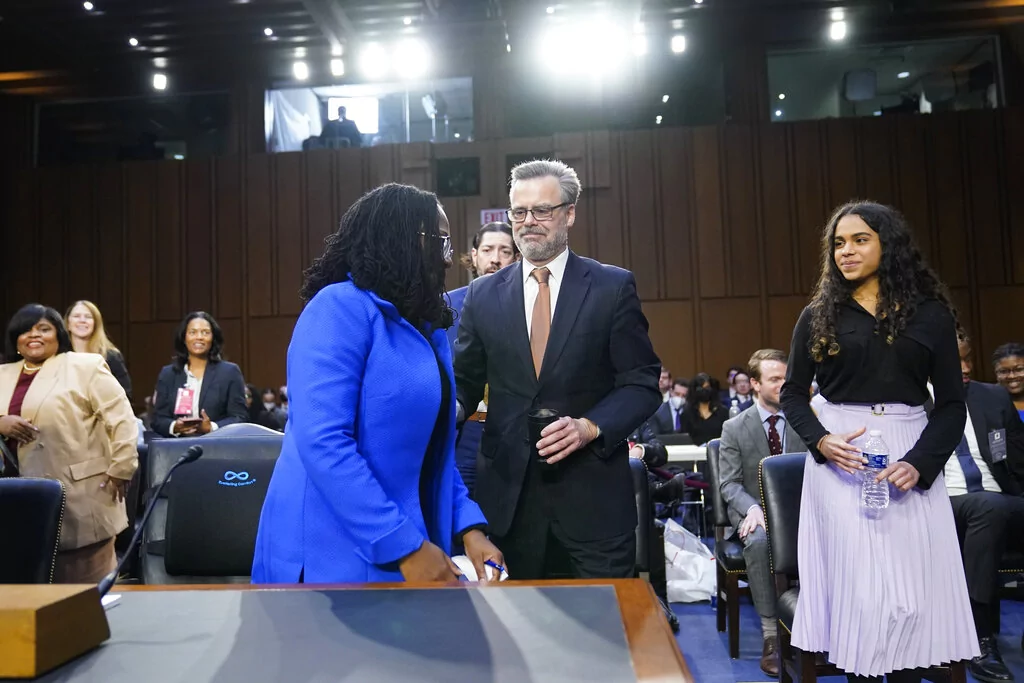In her new memoir, Lovely One: A Memoir, Supreme Court Justice Ketanji Brown Jackson provided a firsthand account of the “politically charged” cases she presided over during the Trump administration while serving as a federal trial court judge in Washington, D.C.
Jackson, who was nominated by President Joe Biden to succeed her former boss and mentor Justice Stephen Breyer, highlighted the intense and often high-profile nature of her work and described her role as a “first responder” in the federal judicial system, where trial judges must efficiently adjudicate complex legal disputes under pressure.

One of the most bizarre and politically charged cases Jackson outlined is the infamous “PizzaGate” incident, in which she sentenced a man to four years in prison for discharging an automatic rifle inside a D.C. pizza parlor.
The man was “under the delusion” that former Secretary of State Hillary Clinton “was operating a child-trafficking ring in the basement of the shop — which had no basement,” Jackson wrote.
Jackson, 53, also reflected on her rulings as a federal district court judge in D.C. concerning executive orders issued by former President Donald Trump that sought to alter collective-bargaining processes between federal employees and agencies. She added thar she upheld “some of the ordered changes and invalidated others.”
Another significant case involved Jackson’s decision to strike down the Trump administration’s efforts to expand a program designed to speed up deportations under a federal immigration statute. She ruled that the Trump administration had not adhered to the procedural requirements necessary to implement such policy changes.
However, the most widely covered case Jackson discussed in her book was her 2019 ruling against former White House counsel Donald McGahn.
Jackson’s 120-page opinion found that McGahn could not legally defy a subpoena issued by the House Judiciary Committee. Her ruling rejected the Trump administration’s claim of “absolute immunity” for current and former officials and asserted that such a concept had “no basis in the law.”
Ahead of her book release, Jackson spoke to CBS in an interview in which she hit out at another immunity-related case at the Supreme Court. On July 1, the court released a 6-3 decision in Trump v. United States and found that former presidents, such as Trump, are immune from prosecution for official acts taken while in office.
“I was concerned,” Jackson said of her “view of what the court determined.”
“The court … declared for the first time in history that the most powerful official in the United States can (under circumstances yet to be fully determined) become a law unto himself,” Jackson wrote in her dissent.

The recent immunity decision prompted federal prosecutors to continue to seek a conviction against Trump in their 2020 election subversion case using the legal map charted by the Supreme Court. But the aftermath has left no chance for a trial until months after the 2024 election — and it potentially created a boon for Trump, who nominated three justices to the high court, to have his future Department of Justice officials dismiss the case if he wins again.
Overall, Jackson’s memoir provided a personal portrayal of her experiences on the bench and highlighted the challenges and responsibilities faced by trial judges who play a critical role in upholding the rule of law during politically sensitive times. While she hardly mentioned any of her eight new colleagues on the high court in her memoir, Jackson recalled a “veteran jurist” who once compared trial court judges to “unsung heroes who are operating directly on the battlefield” while noting her colleague described appellate court judges as soldiers who come “riding in on the back of a horse — to shoot the wounded.”
“As hilarious as it was, that imagery rang true, and I reflected on it often during my nearly eight years on the district court,” Jackson writes.
Jackson, Biden’s only appointee to the high court, became the first black woman on the bench and marked the first Democratic nominee since former President Barack Obama nominated justices Elena Kagan and Sonia Sotomayor. In her memoir, Jackson lamented the failure of then-Judge Merrick Garland, who was the attorney general under Biden, to land on the Supreme Court, writing, “Pundits agreed he was a fine choice” after Obama nominated Garland in 2016.
CLICK HERE TO READ MORE FROM THE WASHINGTON EXAMINER

Jackson also reflected on personal achievements at home and at work, including her relationship with her husband, Dr. Patrick Jackson, and the time her then-11-year-old daughter Leila wrote a letter to Obama shortly before Jackson was called in for an interview as a judge on his Supreme Court short list.
“Stunned, I couldn’t help but wonder if it was Leila’s letter that had helped turn the tide my way. But I refrained from actually posing that question when I eventually met President Obama in the Oval Office for an interview,” Jackson wrote.























